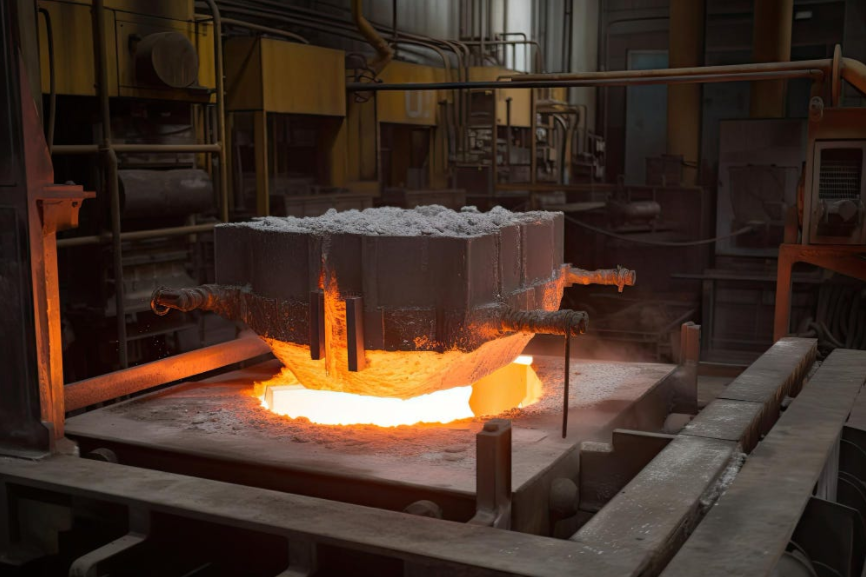Introduction:
In today’s fast-paced manufacturing industry, precision engineering solutions have become a necessity. With the increasing demand for high-quality and accurate components, CNC machining has emerged as a reliable technology. This article focuses on CNC machining aluminum parts and explores its benefits, applications, and the future of this precision engineering solution.
Benefits of CNC Machining Aluminum Parts:
CNC (Computer Numerical Control) machining has revolutionized the manufacturing process by providing numerous benefits. When it comes to machining aluminum parts, CNC technology offers the following advantages:
1. Precision and Accuracy: CNC machines are programmed with high precision, ensuring accuracy in every detail. This is crucial when manufacturing aluminum parts that require tight tolerances and intricate designs. CNC machining eliminates human error and ensures consistent quality throughout the production process.
2. Versatility: CNC machines are incredibly versatile and can be programmed to produce a wide range of aluminum parts. Whether it’s simple shapes or complex geometries, CNC technology can handle any design specification. This flexibility allows for customization and innovation in product development.
3. Efficient Production: CNC machining enables high-speed production, reducing lead times significantly. With advanced automation and tooling capabilities, manufacturers can optimize their processes and achieve faster turnaround times. This efficiency is particularly beneficial for industries with high demand and strict deadlines.
4. Cost-effective: While CNC machines require a substantial initial investment, they offer long-term cost savings. The accuracy and reliability of CNC machining reduce material waste and minimize the need for additional finishing operations. This results in lower production costs and increased profitability for manufacturers.
Applications of CNC Machining Aluminum Parts:
CNC machining of aluminum parts finds widespread applications across various industries. Some notable examples include:
1. Aerospace: Aluminum is widely used in the aerospace industry due to its lightweight and high strength properties. CNC machining ensures precise fabrication of critical components, such as aircraft frames, engine parts, and landing gear.
2. Automotive: The automotive sector extensively utilizes aluminum parts for improved fuel efficiency and performance. CNC machining enables the production of engine blocks, pistons, transmission components, and other vital parts with strict dimensional requirements.
3. Electronics: With the increasing miniaturization of electronic devices, CNC machining plays a vital role in manufacturing aluminum parts for electronic enclosures, heat sinks, connectors, and other precision components.
4. Medical: CNC machining is essential in the medical industry for producing medical devices, implants, and surgical instruments. Aluminum parts manufactured with CNC technology offer biocompatibility, corrosion resistance, and high precision required in healthcare applications.
The Future of CNC Machining Aluminum Parts:
As technology continues to advance, the future of CNC machining aluminum parts looks promising. Several trends are shaping the future of precision engineering solutions:
1. Automation and Robotics: The integration of automation and robotics in CNC machining is expected to increase efficiency and productivity further. This advancement will enable manufacturers to achieve higher production volumes without compromising quality.
2. Advanced Materials: The demand for lightweight and durable materials is on the rise. CNC machining will evolve to accommodate new materials, such as aluminum alloys, titanium, and composites, offering manufacturers more options for innovation.
3. Industry 4.0 Integration: CNC machines will be seamlessly integrated into the concept of Industry 4.0, where interconnected systems and data-driven decision-making will optimize manufacturing processes. This integration will enhance efficiency, reduce downtime, and enable real-time monitoring of production.

Conclusion:
CNC machining aluminum parts have revolutionized the manufacturing industry by providing precision engineering solutions. The benefits of CNC technology, such as precision, versatility, efficiency, and cost-effectiveness, make it a preferred choice for producing aluminum components. From aerospace to medical, CNC machining finds applications in various industries. With the integration of automation, robotics, and advanced materials, the future of CNC machining aluminum parts is promising, paving the way for new manufacturing possibilities.
-

- Díly a komponenty ze slitiny hořčíku pro elektrokola
-

- Kryt motoru elektrického vozidla z tlakového lití z hořčíkové slitiny uprostřed
-

- Magnesium alloy die-casting Auto parts controller housing
-

- Magensiový rám horského kola
-

- Přilba Thixomolding z tlakového lití z mangenové slitiny
-

- Díly a komponenty na kolo z hořčíkové slitiny pro dětská kola

 0086-750-5616188
0086-750-5616188 +86 13392089688
+86 13392089688 sales@zhongmei-tech.com
sales@zhongmei-tech.com







